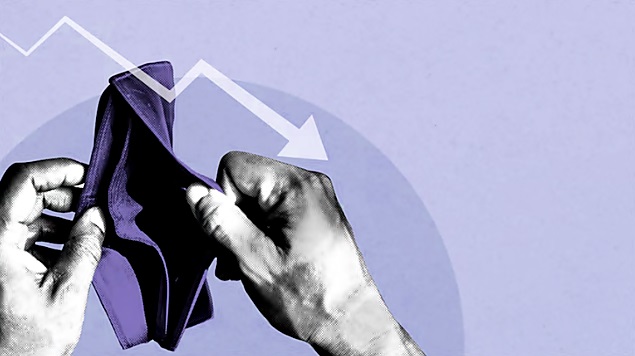1546

There is widespread lack of confidence in global economic prospects for the coming year, with the majority of individuals feeling that their country is in a recession, according to the latest FMCG Gurus analysis focusing on price trends.
Consumers are making conscious efforts to cut costs in various areas.
Additionally, there has been a decrease in the percentage of people who believe their household can comfortably cover living expenses over the past year.
This indicates that an increasing number of individuals are facing financial pressure, which will have a significant impact on their buying behavior.
As consumers face financial pressures, they are making significant lifestyle adjustments to stretch their budgets. While these measures may provide a sense of financial control, they can have adverse effects on both physical and emotional well-being.
In the past year, there has been a noticeable increase in the number of people attempting to minimize their energy consumption due to rising prices. For example, FMCG Gurus consumer insights show that 66% of global consumers have made efforts to reduce their energy consumption at home in the last six months.
From this, there's a risk of people feeling cold in their own homes, affecting the health of particularly vulnerable individuals. Additionally, there has been a slight increase in the proportion of people reporting cuts in spending on gifts for loved ones.
This can affect emotional well-being, as it leads to feelings of reluctance to make sacrifices and may induce guilt, especially among certain demographic groups such as parents.
Population is concerned
Consumers are concerned that inflation in food and beverage prices will continue to worsen.
Even before the current challenges related to the cost of living, many consumers found grocery shopping to be a costly endeavor. Inflation in prices over the past year has heightened these concerns, with a noticeable increase in the percentage of people now perceiving grocery shopping as expensive.
For example, FMCG Gurus market research demonstrates that 53% of global consumers consider grocery shopping to be expensive, up from 47%. In contrast, the proportion of people believing that prices are rising has remained constant, suggesting that there is a growing segment of the population that managed living costs a year ago but is currently facing difficulties.
When analyzing price inflation, consumers are more inclined to believe that prices have increased for essential items such as bread and dairy, as opposed to non-essential luxuries.
This signifies the difficulty in significantly reducing expenses for essential groceries. However, it's important to recognize that despite their efforts, consumers may struggle to stick to a budget and make impulsive purchases for non-essential items, leading to feelings of guilt afterward.
The food service sector will continue to face significant challenges.
In the past year, three out of four people worldwide have cut back on spending in the food service sector, indicating how cutting back has become part of daily life for many.
When cutting spending, individuals are not only focused on reducing expenses in formal, luxury establishments, but have also aimed to limit spending on more informal, occasional occasions, such as snacks and hot drinks in this sector.
However, it's important to recognize that people place great value on self-indulgence and resist feelings of sacrifice, especially when often turning to food as a means of escaping daily pressures.
As a result, there has been a noticeable increase in the proportion of individuals seeking small indulgences (such as cakes, chocolate, and alcoholic beverages) as a way to compensate for reduced spending in the food service sector.
Despite consumers' cost-cutting mentality, brands and retailers need to promote the concept of affordable indulgence in 2024. (Photo: Freepik)





